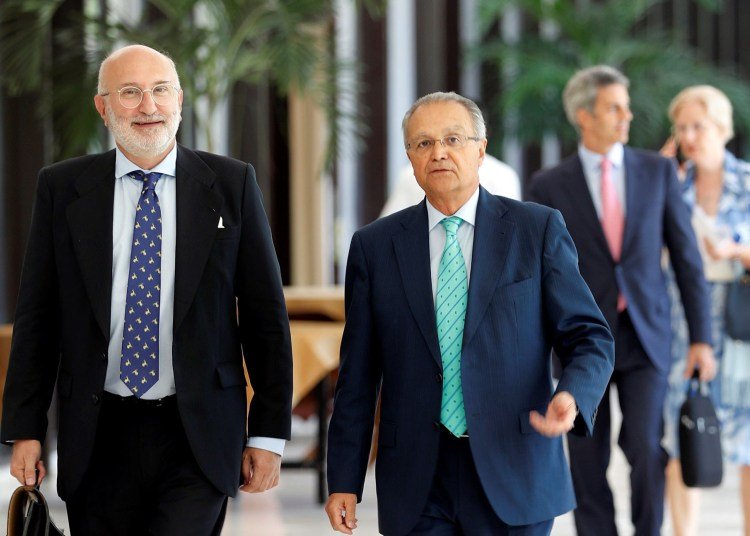Cuban Foreign Minister Bruno Rodríguez and Spanish Secretary of State for International Cooperation Juan Pablo de Laiglesia confirmed the willingness of both countries to strengthen political dialogue, cooperation and economic ties, the island’s Foreign Ministry reported this Tuesday.
The “cordial meeting” took place on the eve after the holding in Havana of the second Cuba-European Union Joint Council, in which the Caribbean country and the community bloc reviewed the progress of the Agreement on Political Dialogue and Cooperation and began a new cycle in renewed bilateral relations.
Rodríguez and De Laiglesia “highlighted the good state of bilateral relations and expressed mutual willingness to boost exchanges in different spheres, consolidate political dialogue and strengthen economic-commercial, cooperation and cultural ties,” according to the brief official note.
For his part, the Spanish secretary of state for international cooperation said on his Twitter account that the meeting with the Cuban foreign minister was “fruitful” and that both parties showed the willingness to “continue strengthening bilateral relations based on mutual respect and confidence building.”
Fructífero encuentro con el Ministro de Relaciones Exteriores de #Cuba @BrunoRguezP en La Habana Voluntad de seguir fortaleciendo la relación bilateral basada en el respetuo mutuo y el fomento de la confianza. Una #España comprometida con el pueblo cubano @MAECgob @JosepBorrellF pic.twitter.com/oZxWWFPUsh
— Juan Pablo de Laiglesia y González de Peredo (@JPLaiglesia) September 9, 2019
The meeting was also attended by the Spanish ambassador on the island, Juan Fernández Trigo, and the director of Europe and Canada of the Cuban Foreign Ministry, Alba Soto Pimentel.
After the second Cuba-EU Joint Council, the high representative of the European Union (EU) for foreign policy, Federica Mogherini, told the press this Monday that she hopes the island will expand its hitherto limited economic opening and offered more financial support from the bloc to support the reforms.
Both sides reviewed their political relations and took the opportunity to “launch new sectorial dialogues on agriculture, energy, climate change and the environment,” Mogherini added.
The head of European diplomacy also revealed that they talked about “the situation and cooperation in the region, and in Venezuela in particular,” without specifying whether they reached a consensus on the situation in the South American country, where Cuba supports the government of Nicolás Maduro, while the EU recognizes opposition leader Juan Guaidó as president.
Speaking to a small group of media, including the EFE agency, the Spanish secretary of state for international cooperation and for Iberian-America and the Caribbean, preferred to downplay the differences between Europe and Cuba in this matter.
“The negotiated solution, the rejection of violence, the search for the creation of conditions so that a direct dialogue can take place, that the solution be political. All these elements are the basis of the European position, and it is not a position contrary to the Cuban one,” said De Laiglesia.
In recent years Cuba and Spain have witnessed a rapprochement in their bilateral relations, which crystallized in the visit to Havana of the acting president of the Spanish government, Pedro Sánchez, in November 2018.
EFE / OnCuba










